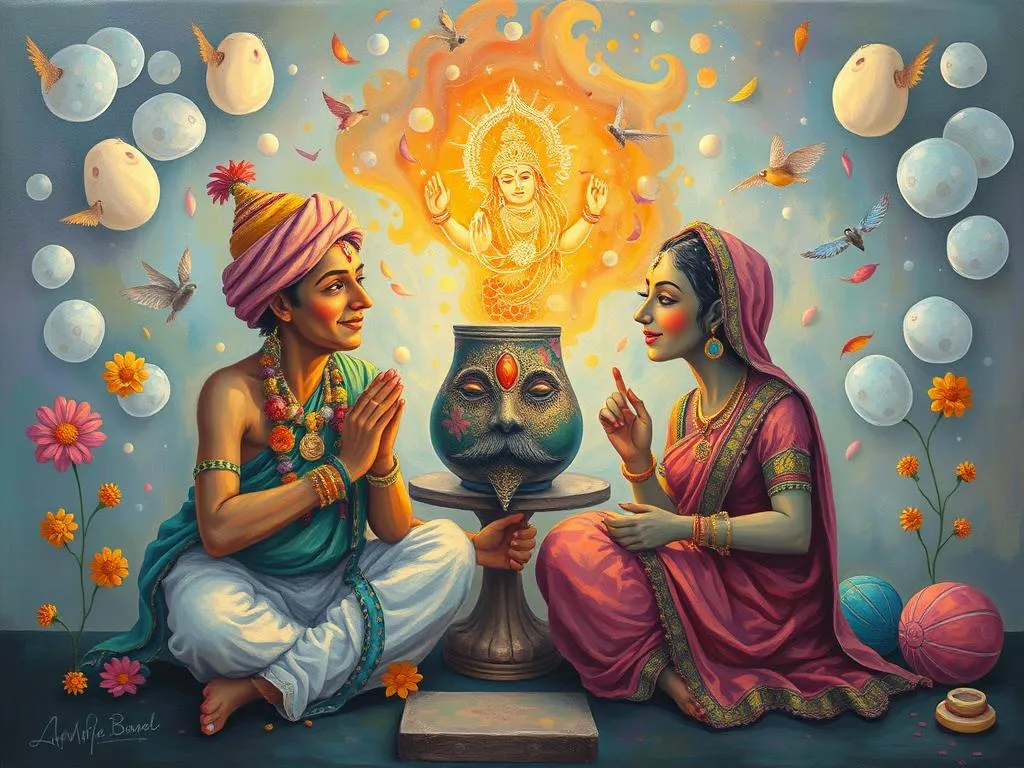
Dreams have long been regarded as a window into our inner selves, a mystical realm where our subconscious unveils thoughts, emotions, and experiences. When we dream of Brahmin families, a unique cultural tapestry interweaves our hopes, fears, and aspirations, offering insights that resonate deeply with our personal journeys. Perhaps you’ve found yourself navigating the intricate dynamics of family traditions, expectations, or even spiritual quests in your dreams. This article will guide you through the hidden meanings behind these dreams, drawing on cultural perspectives, psychological insights, and practical advice that feels like wisdom shared by a close friend.
As we delve into this ethereal world, consider your own experiences and feelings. What messages are your dreams trying to convey? The dreams of Brahmin families can serve as a mirror reflecting our desires for connection, respect for tradition, and the quest for self-identity. Let’s embark on this journey of discovery together, exploring the layers of meaning behind these dreams and how they can illuminate your path forward.
Roots and Rituals: Decoding Symbolism in Brahmin Dreams
When interpreting dreams about Brahmin families, it’s essential to delve into the symbols that populate this rich tapestry. The Brahmin community, steeped in tradition and spirituality, often represents values such as wisdom, purity, and sacredness. Here are several significant symbols that may appear in your dreams and their potential meanings:
-
Sacred Rituals: If you dream of participating in a Puja or other religious ceremonies, it may highlight your desire for spiritual connection or a longing to embrace your cultural roots. Such dreams can signify a need for balance in your life, urging you to integrate spiritual practices into your daily routine.
-
Elders and Ancestors: The presence of wise elders in your dreams could symbolize guidance from your subconscious or a yearning for wisdom and understanding. These figures often embody the values and teachings passed down through generations, prompting you to reflect on your own life choices and family legacy.
-
Sacred Texts: Encountering texts like the Vedas or Upanishads in your dreams may point to a quest for knowledge or deeper understanding of life’s mysteries. It suggests an inner calling to explore your spiritual side and consider how these teachings can inform your life decisions.
-
Ritual Objects: Dreams featuring items such as Diyas (lamps) or Kalash (pot) can symbolize enlightenment, prosperity, and the nurturing of the soul. Seeing these objects may suggest a quest for clarity or a desire to foster positivity in your life.
-
Traditional Attire: Clothing often speaks volumes in dreams. If you see yourself or others dressed in traditional Brahmin attire, it could indicate a longing for connection to your heritage or an exploration of your identity. This can be a powerful reminder to honor your roots while embracing your individuality.
By analyzing these symbols, you can begin to unravel the messages your dreams are sending you. Reflect on your current life circumstances and consider how these symbols resonate with your personal experiences, values, and aspirations.
Family Ties: Scenarios from the Dream Realm
Dreams often present scenarios that can be puzzling yet enlightening. Here, we explore a few common scenarios involving Brahmin families that might resonate with you, each offering a glimpse into your subconscious:
-
Attending a Family Gathering: You find yourself at a vibrant family function, surrounded by laughter and celebration. This dream may signify a desire for connection and support within your family structure. It could also indicate your need for communal bonding and the importance of cherishing relationships that nurture your spirit.
-
Conflict Over Traditions: You dream of a heated discussion about family customs, with different generations clashing over traditional values. This scenario can reflect your internal struggle between honoring your heritage and pursuing personal freedom. It may suggest a need to find a balance that respects both your roots and your individual journey.
-
Receiving Blessings from Elders: In this dream, you are blessed by an elder or a revered family member, showered with love and wisdom. This scenario often symbolizes a longing for validation and reassurance. It may also indicate that you are on the right path, guided by the support of your ancestors, both spiritually and emotionally.
-
Seeking Wisdom at a Temple: You find yourself in a serene temple, seeking solace and answers. This dream signifies your quest for spirituality and understanding. It suggests a need to carve out time for introspection and connection with your inner self, allowing you to align your actions with your values.
-
Breaking Away from Family Expectations: You dream of leaving a family event feeling overwhelmed by expectations. This scenario can symbolize your desire for autonomy and the struggle to define your own identity outside the confines of familial roles. It encourages you to embrace your unique path while still honoring your heritage.
These scenarios illustrate the myriad ways your dreams reflect your relationship with your family, identity, and cultural values. Consider how these situations resonate with your waking life and what insights they may offer about your personal growth and connections.
Navigating the Journey: Growth through Brahmin Family Dreams
Dreams involving Brahmin families can serve as catalysts for personal growth, urging you to examine your beliefs, values, and relationships. Here are some practical insights to help you navigate your journey:
-
Embrace Your Heritage: Reflect on the lessons and teachings from your family and culture. Understanding your roots can empower you to make informed decisions that honor your past while paving the way for your future. Acknowledging your heritage can also foster a sense of belonging and identity.
-
Seek Balance: If you find yourself torn between tradition and personal freedom, consider ways to blend both aspects harmoniously. Create rituals that honor your family’s customs while allowing space for your individuality. This balance can lead to a more fulfilling life where you feel both grounded and liberated.
-
Cultivate Spirituality: Whether through meditation, prayer, or self-reflection, nurturing your spiritual side can enhance your well-being. Draw inspiration from the teachings of your culture and integrate them into your daily life. This practice can foster inner peace and clarity.
-
Communicate Openly: If family dynamics are a source of tension, consider initiating open conversations about expectations and values. Honest dialogue can bridge generational gaps and foster understanding, allowing you to navigate familial relationships with greater ease.
-
Honor Your Journey: Remember that your path is uniquely yours. While it’s essential to honor your family’s legacy, it’s equally important to embrace your individuality. Celebrate your achievements, dreams, and aspirations, and trust that your journey is valid and meaningful.
As you reflect on the messages from your Brahmin family dreams, consider how they guide you toward growth and understanding. Embrace the wisdom they offer and allow them to inform your life choices, fostering deeper connections with both your heritage and yourself.
In conclusion, dreams about Brahmin families encapsulate a rich tapestry of symbolism, relationships, and personal growth. They invite you to explore the depths of your identity, forge connections with your cultural heritage, and navigate the complexities of familial expectations. By embracing these dreams and the insights they provide, you can embark on a journey of self-discovery, empowered to shape your path forward. Remember, the messages hidden in your dreams are there to guide you—listen closely, and let them illuminate your way.







